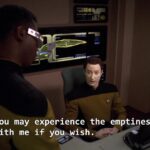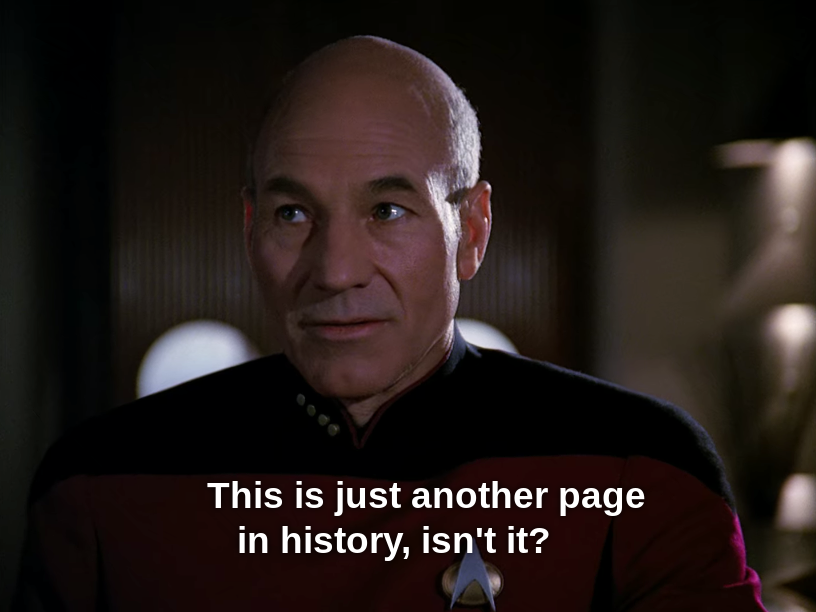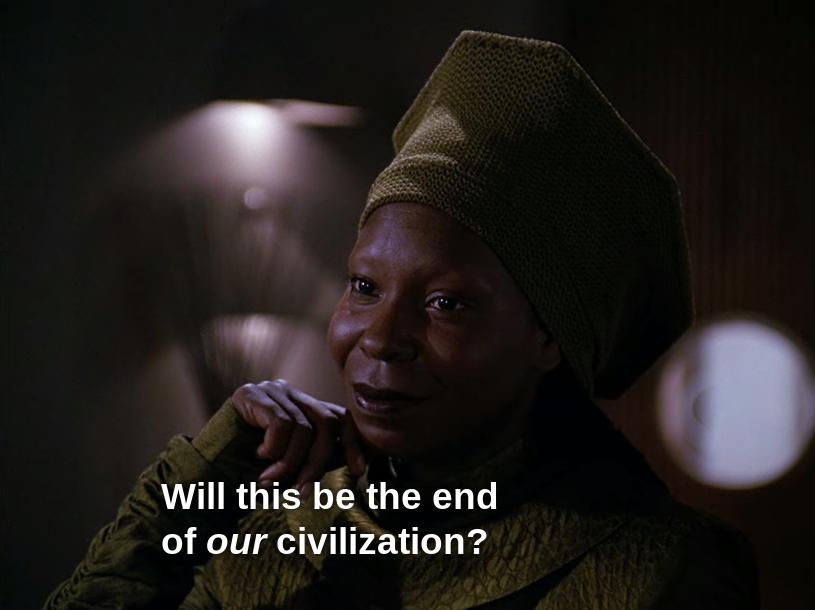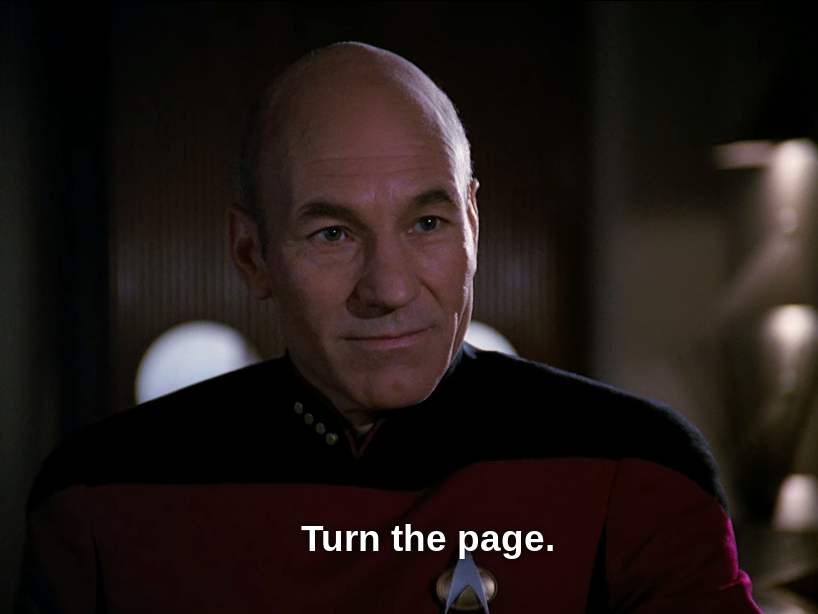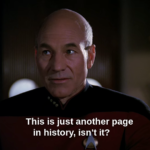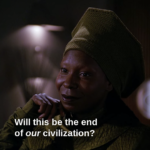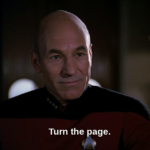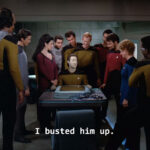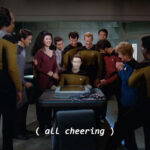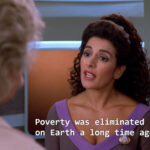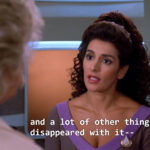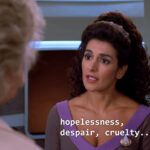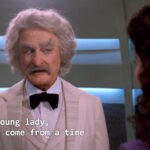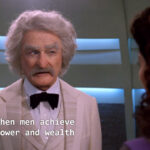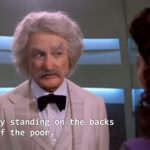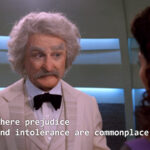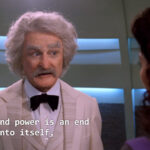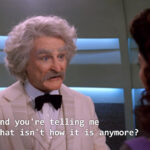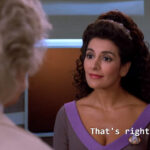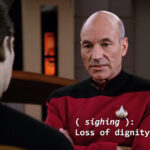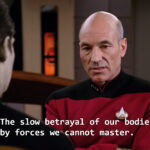I’m that friend.
Tag: tng
Been stuck on the same page for too long, Jean-Luc.
Ursula Le Guin on Star Trek: TNG
My Appointment with the Enterprise
An Appreciation
By Ursula K. Le Guin
For years now I’ve had an appointment with the crew of the Enterprise, two nights a week. It’s hard to remember that at first I didn’t like the program. I said things like, “If Q knows everything, how can he be so stupid? And if Wesley is 15, how can he know everything?” But then I caught a rerun of “The Offspring,” in which Data builds a daughter, and I was hooked.
It’s been fascinating to watch Brent Spiner develop the physical and psychological subtleties of a role that might have been just another jerky android. The casting of the show was superb from the start. Gates McFadden, Marina Sirtis, and Majel Barrett brought depth and complexity to the conventionally feminine roles of Dr. Crusher, Counselor Troi and Lwaxana Troi. Many of us wish that Tasha Yar (Denise Crosby) and Ens. Ro (Michelle Forbes) had stayed on board to shake things up, but at least we got Whoopi Goldberg wearing those great hats. The lead male actors, all impressive separately, were also great team players, their characters changing and deepening in relation to one another.
Worf (Michael Dorn) was my first love. That voice, Richter 6.5-that forehead-those dark, worried eyes-those ethical problems! The glimpses of Klingon dynastic struggles were like Shakespeare’s plays about the kings of England, full of quarrels and treachery and kinfolk at each other’s throats-just like a family Christmas. I love that stuff. Worf, caught between two worlds, was a powerful figure, tragic. Being in love with him I thought was safe, until I saw the episode in which Capt. Picard (Patrick Stewart) lives a whole life in 25 minutes, and then the one where he revisits his home and brother in France. Such a strong, sensitive, intelligent man, so short, so bald, so beautiful-well, so I’m a bigamist.
My favorite episode may be the one where Picard is alone with Capt. Dathon (Paul Winfield), an alien whose language is all myth and metaphor. A beautiful idea, and the way the alien’s soul shone through his ugly, piggish, snouted face was magic.
The Next Generation never had a simplistic concept of Us/Nice/Real People vs. Them/Ugly/Villains. Of course, there are bad guys out there. When the Klingons turned into real people, the Romulans and Cardassians were waiting-but they keep turning into real people, too. The Borg was a great embodiment of Evil-mechanical evil, absence of souL Hence the power of the episode where Picard, the very soul of the Enterprise, became a Borg: Anybody, even the best man, can lose his soul. This is a genuinely scary idea, a mature concept. Violence, on The Next Generation, is shown as a problem, or the failure to solve a problem, never as the true solution. This is surely one reason why the show has such a following among grown women and men.
Lots of young people watch it, too, of course, and, recently, at a conference about science fiction, one of them told me why: “A lot of science fiction shows us a future just like now, only worse,” she said. “I like The Next Generation because it shows us a future I could live in.”
What I myself like best about it is the way it transforms vision. The best example of this magic is Geordi’s visor. At fist, I saw Geordi (LeVar Burton) as a blind guy with a prosthetic device. I don’t know when the transformation happened-when I began to see him, and got uncomfortable when he took his visor off. I felt this discomfort even in one dream sequence where his eyes were perfectly normal. Who cares about “normal,” when what you care about is Geordi?
This is what science fiction does best. It challenges our idea of what we see as like ourselves. It increases our sense of kinship.
And it was Gene Roddenberry’s legacy to a great writing and production team. Naturally fearless and innovative, Gene never stopped learning. He knew television’s power to persuade by showing, and wanted to use that power well. On the Enterprise, we see the difference of racial and alien types, gender difference, handicaps, apparent deformities, all accepted simply as different ways of being human. In this, The Next Generation has been light-years ahead of its predecessors, its imitators, and practically everything else on television. The continuing mission of the Starship Enterprise has been to take us out of the smog of fear and hate into an open space where difference is opportunity, and justice matters, and you can still see the stars.
Ursula Le Guin writing in TV Guide on May 14th, 1994
Please cheer.
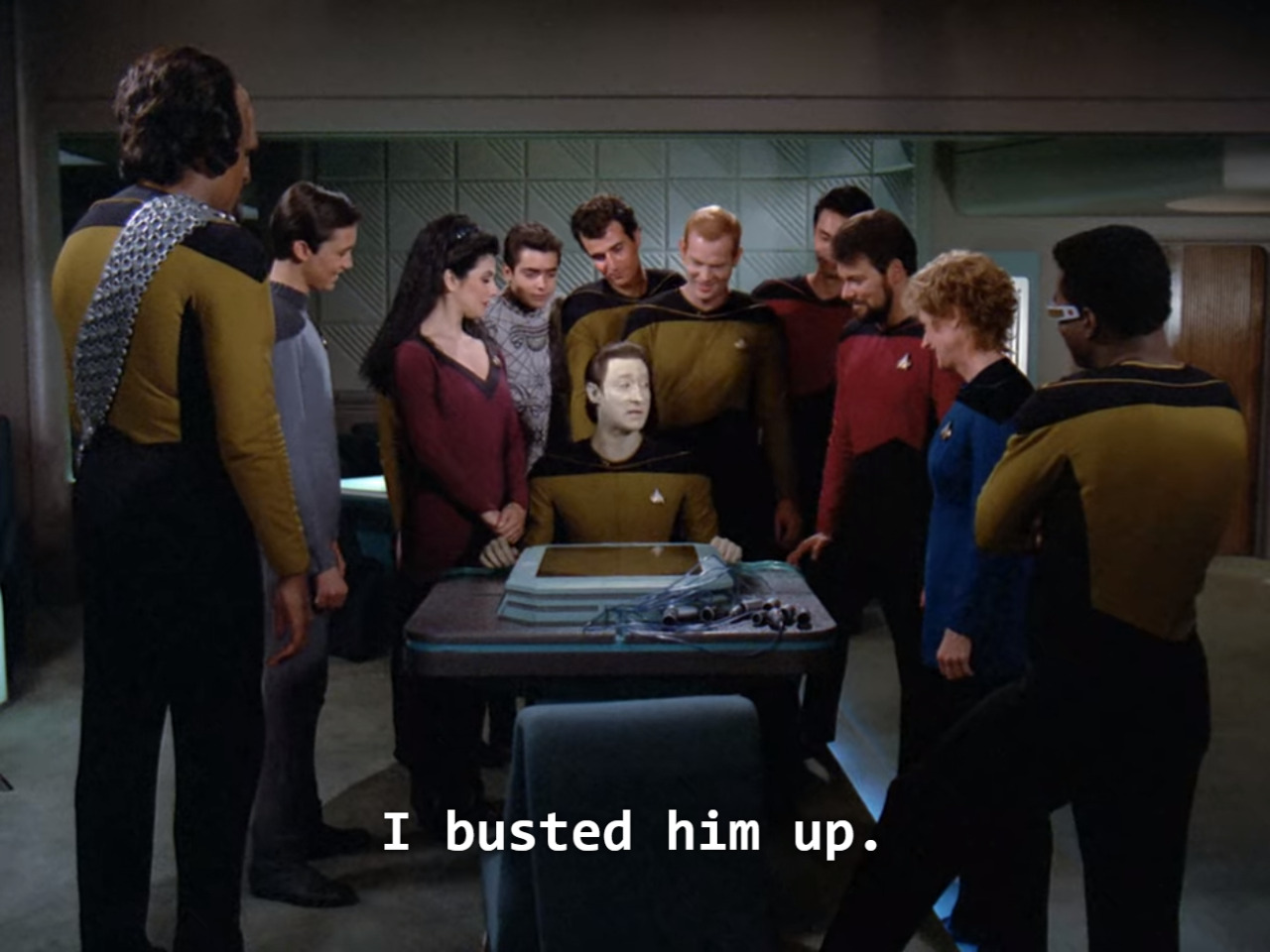
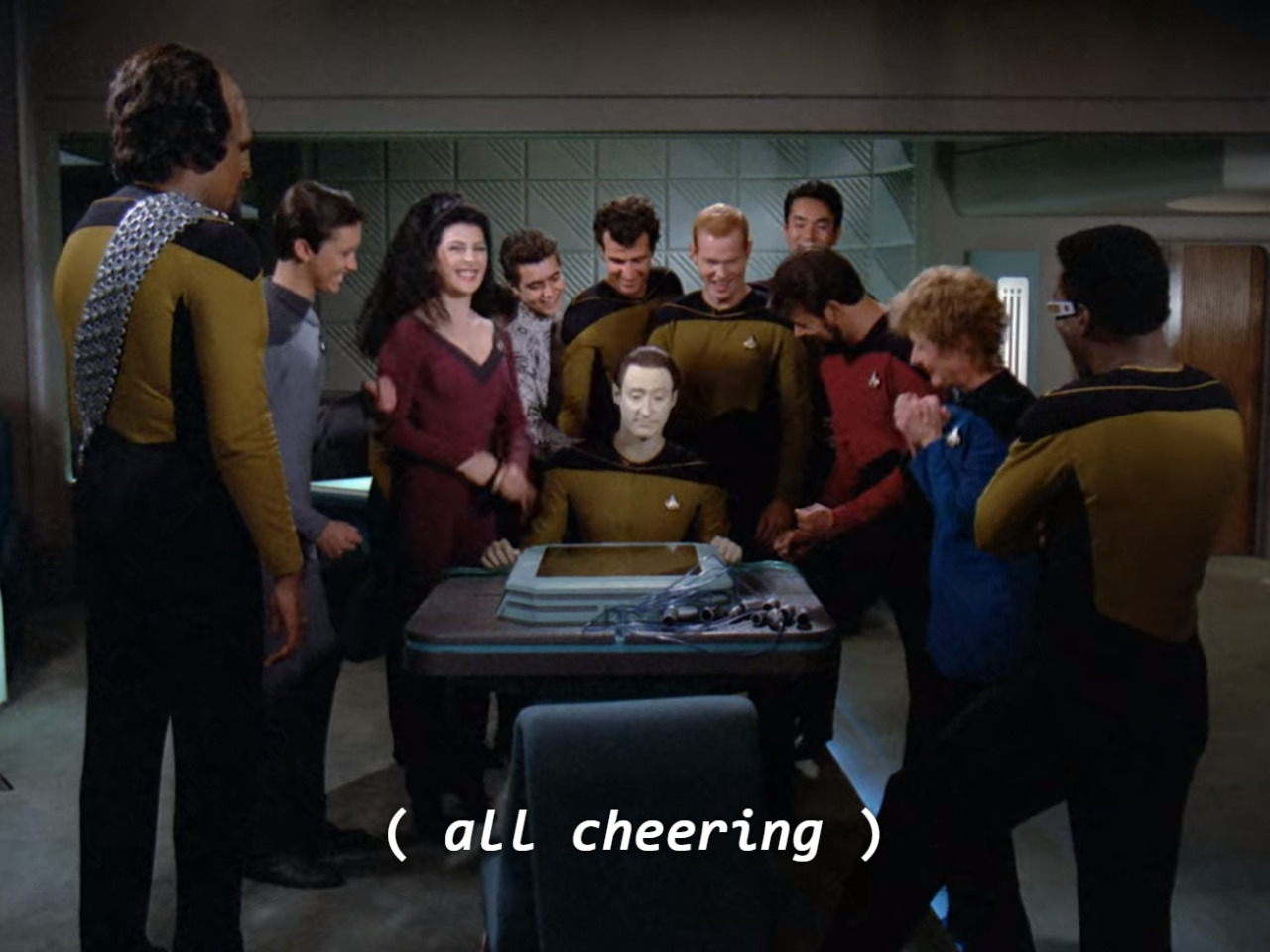
Please cheer.
Must be nice.
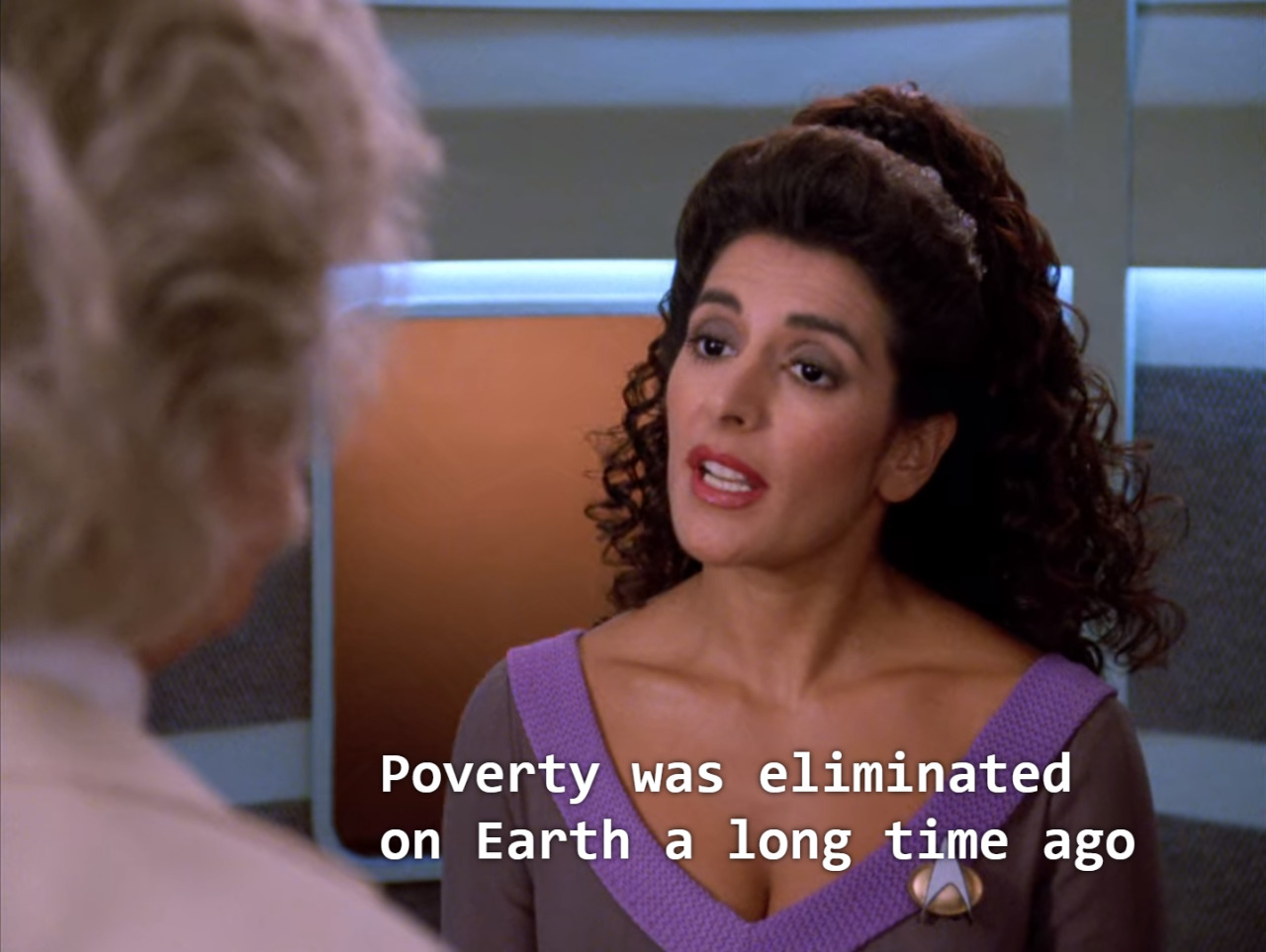
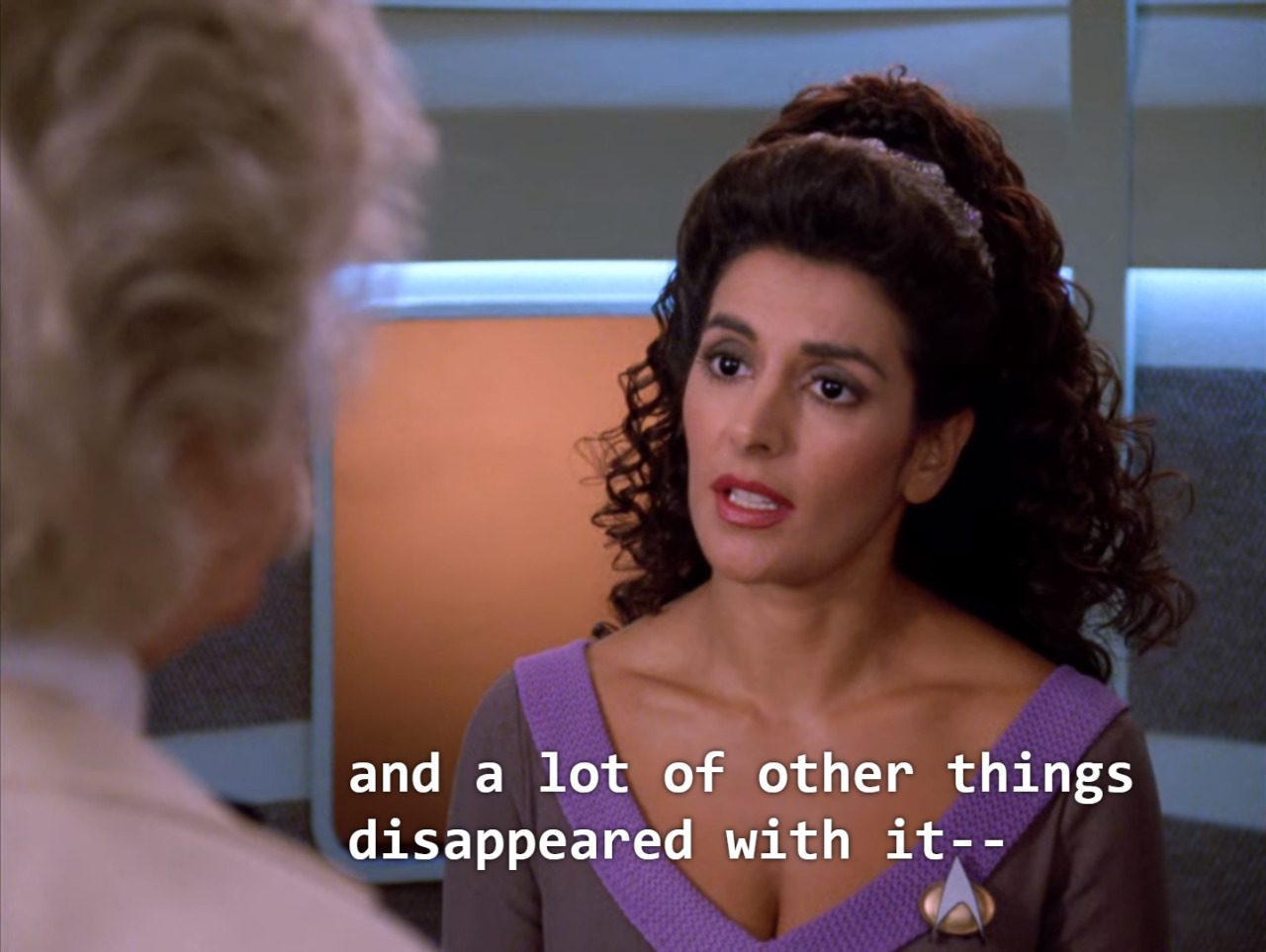
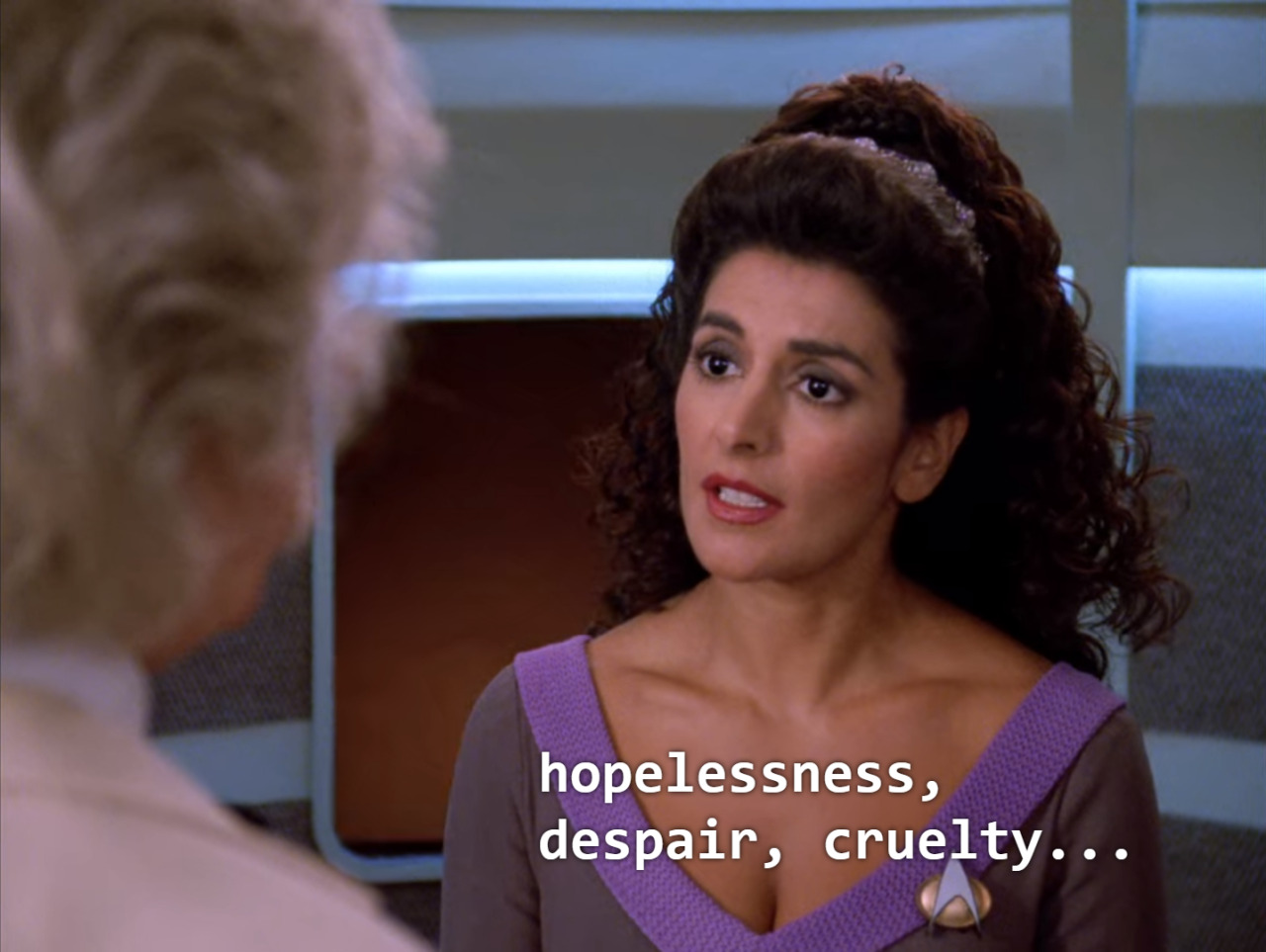
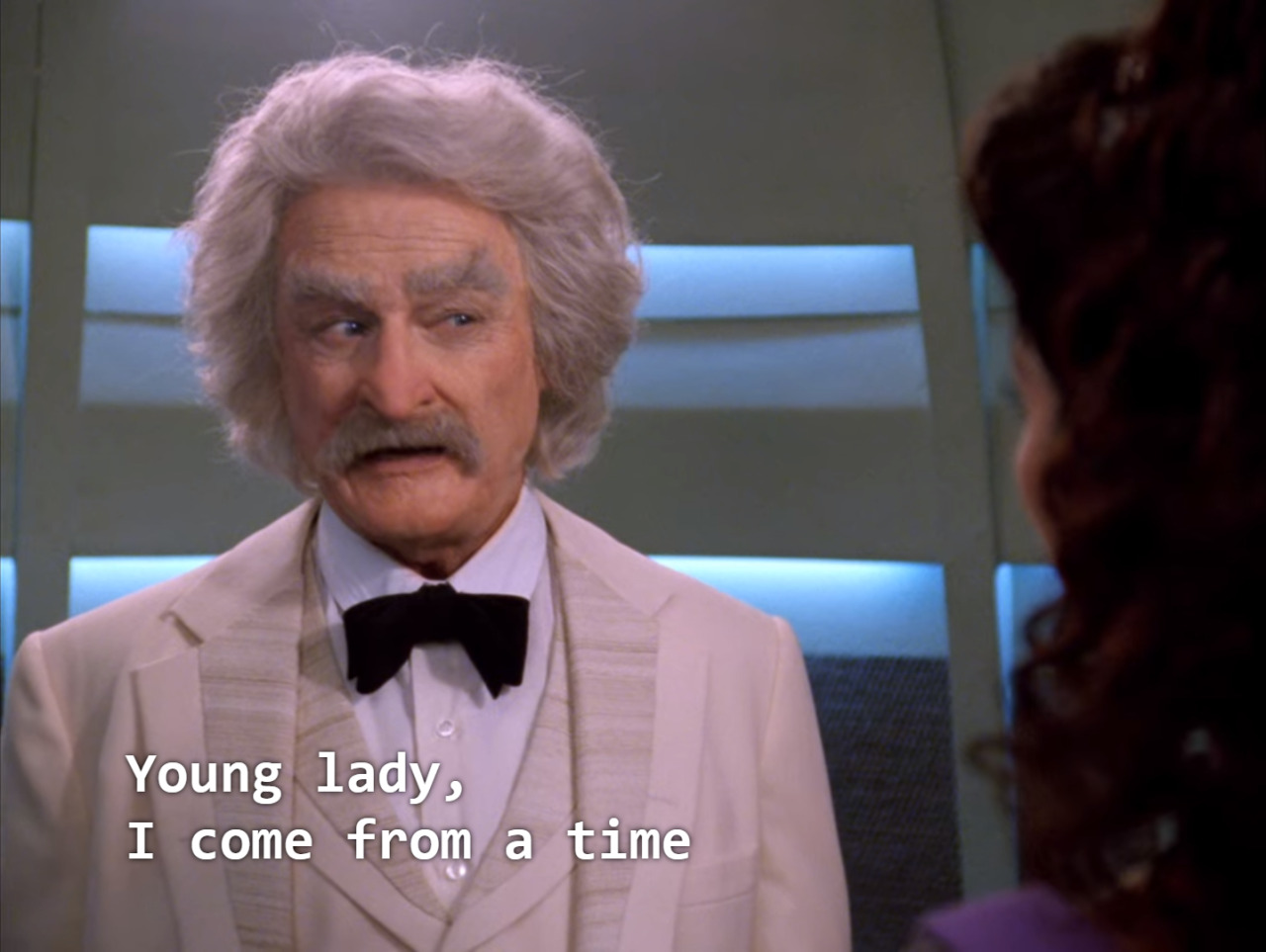
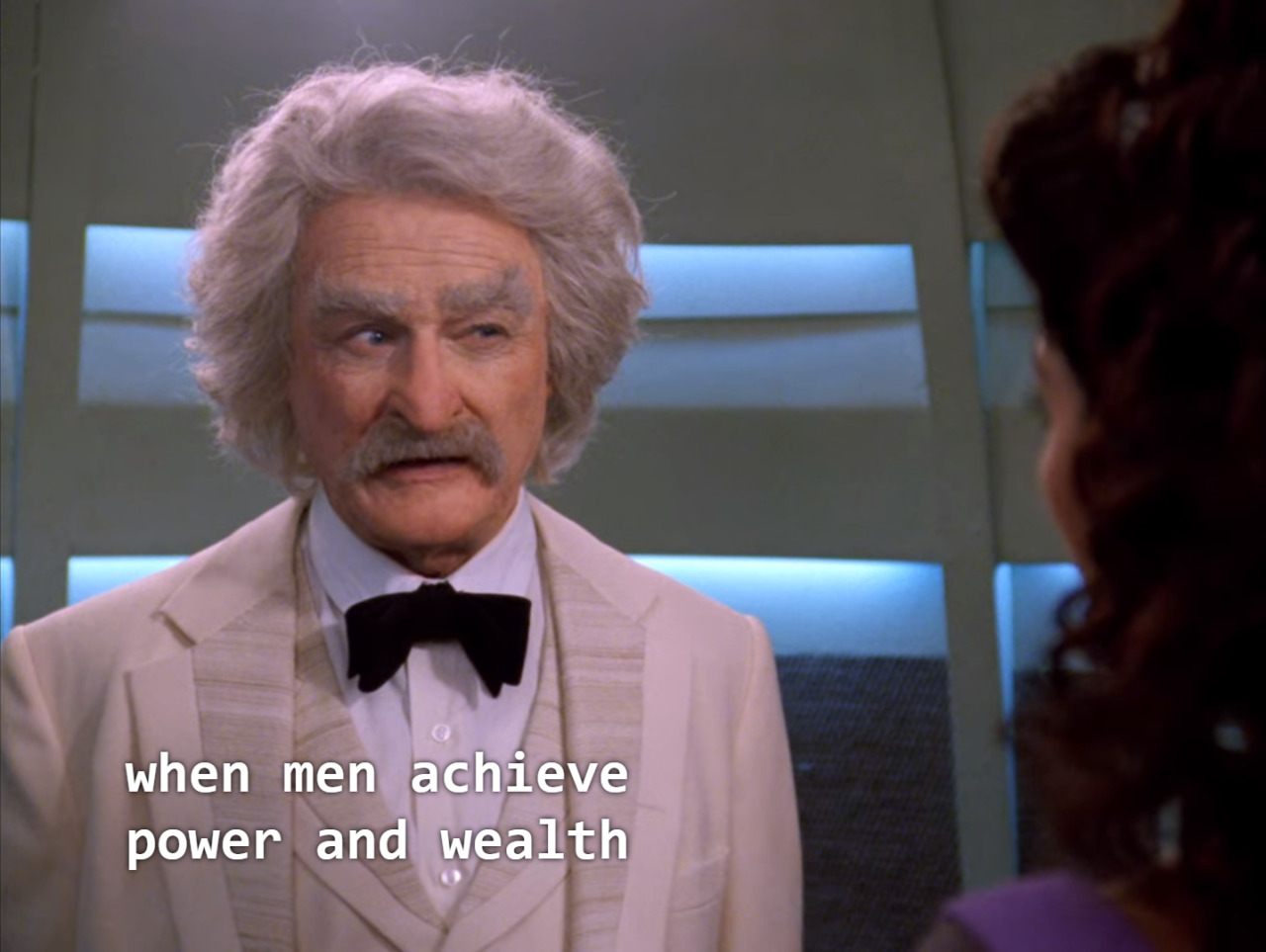
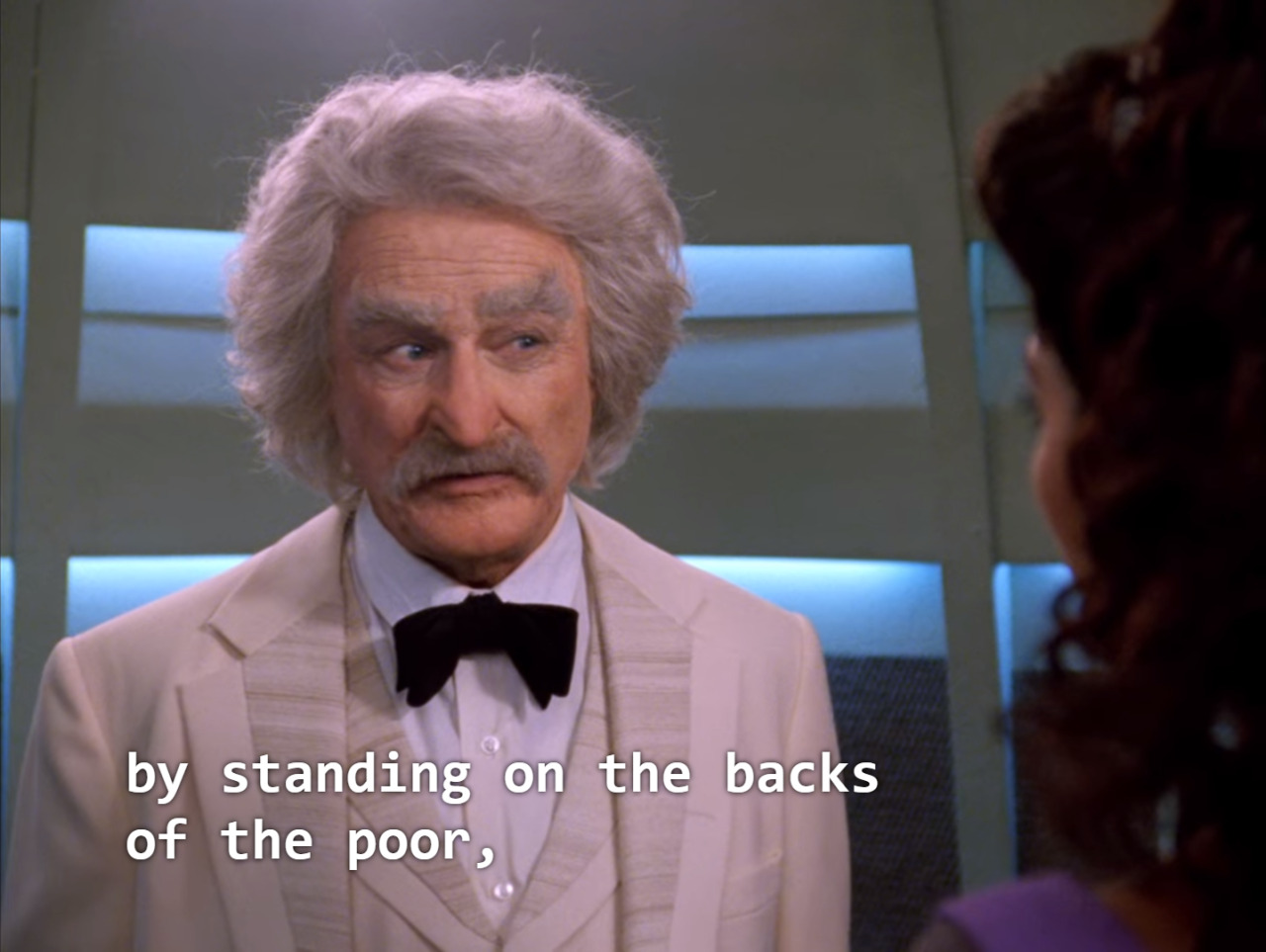
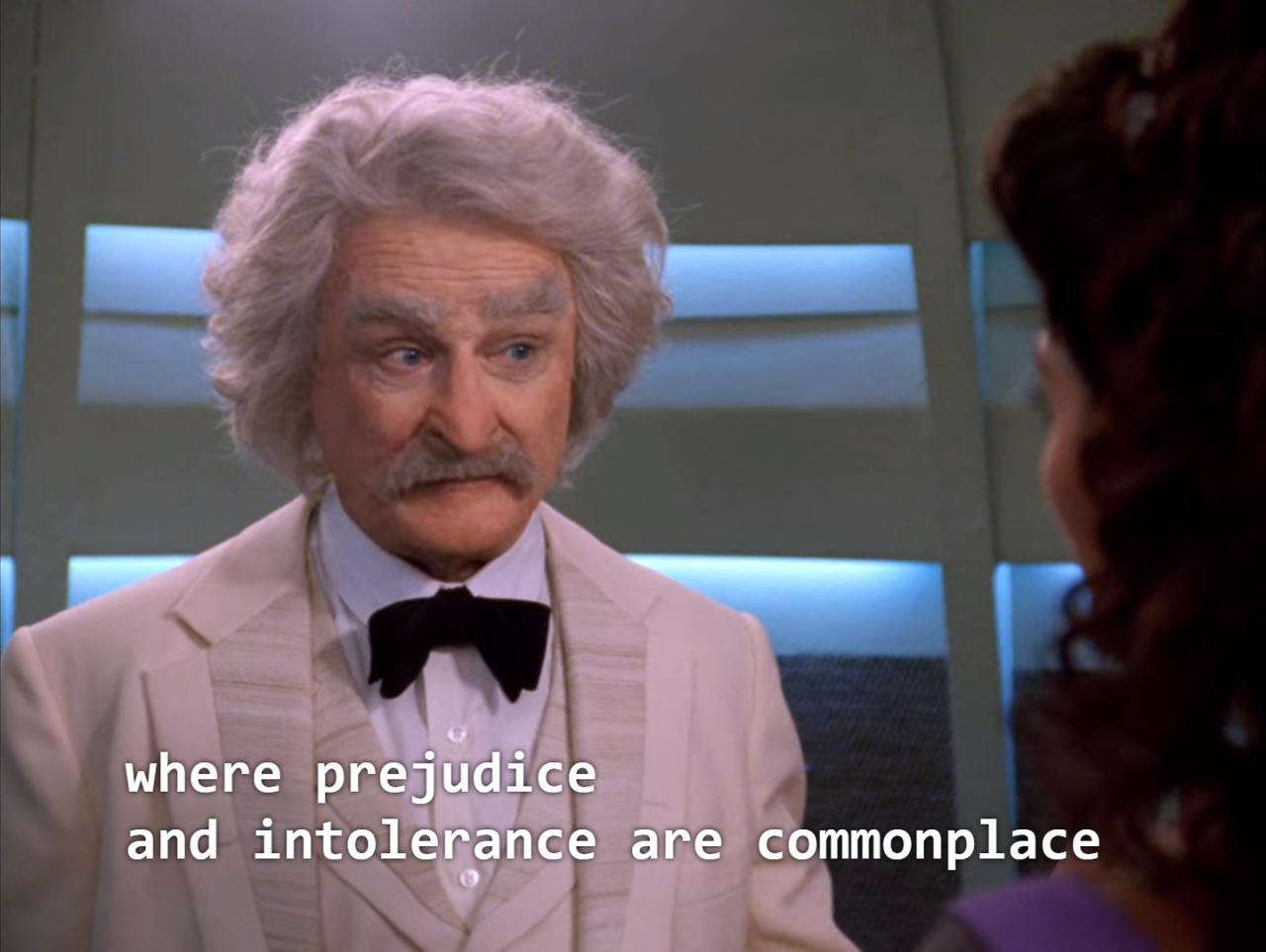
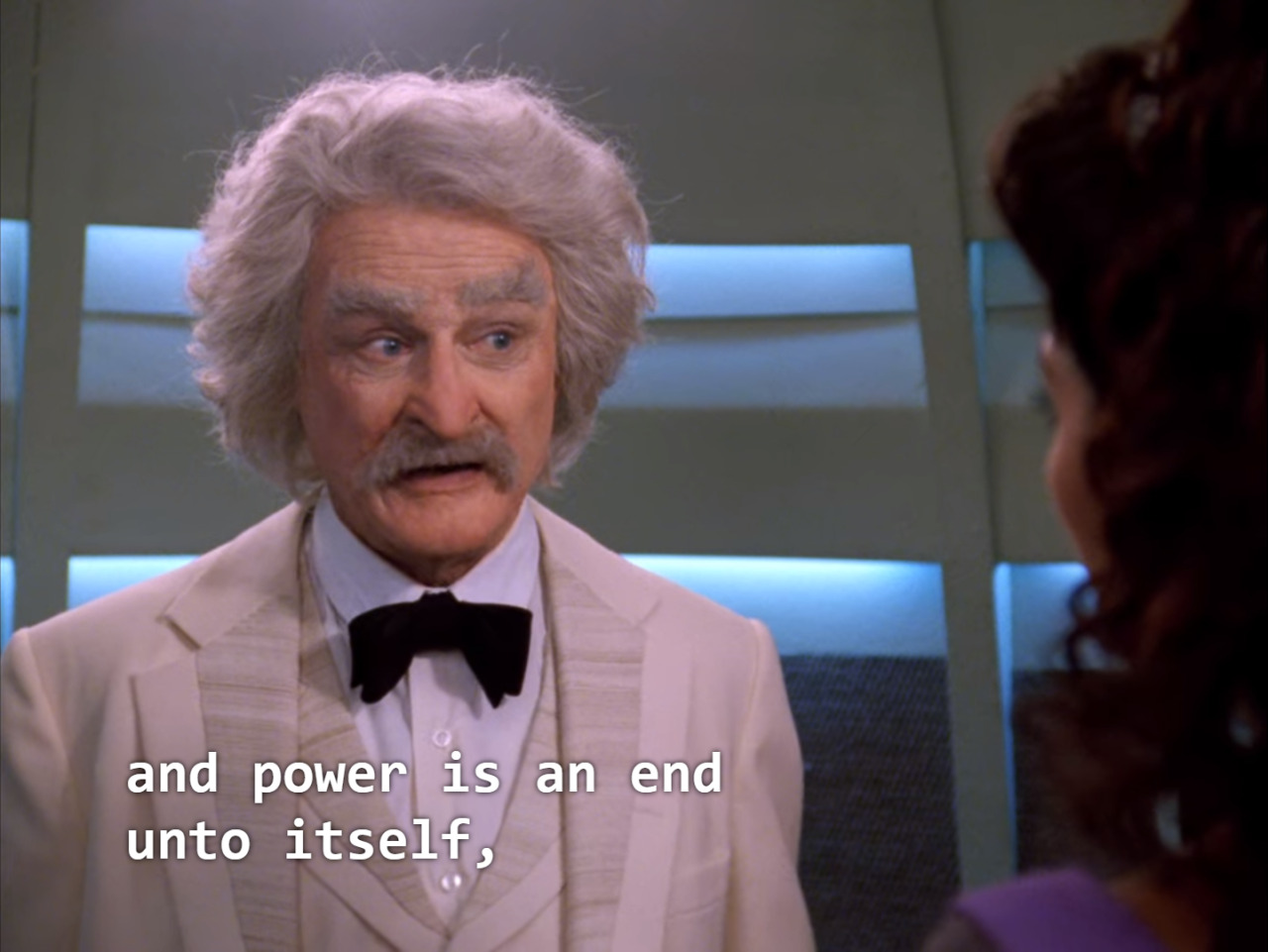
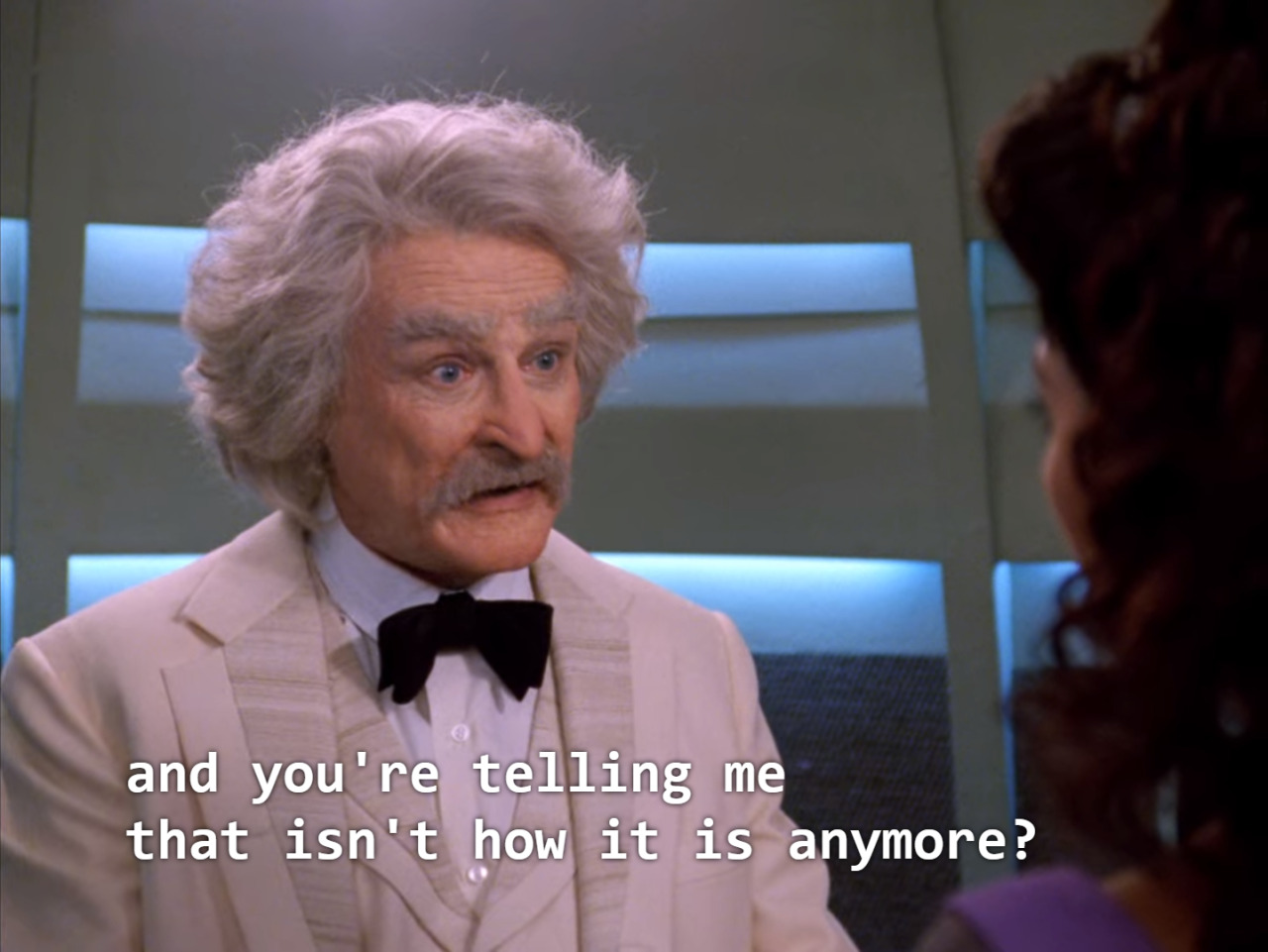
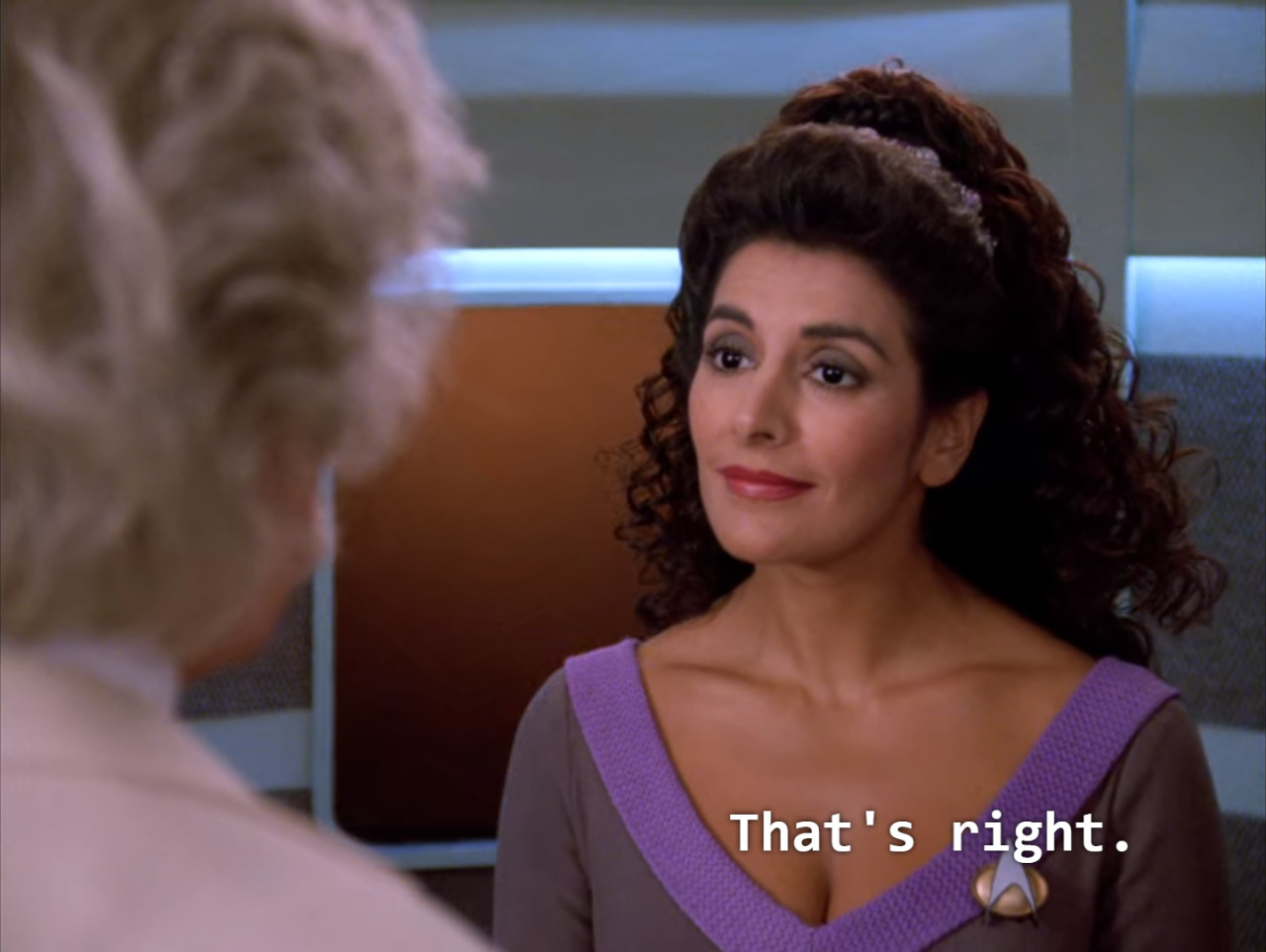
Must be nice.
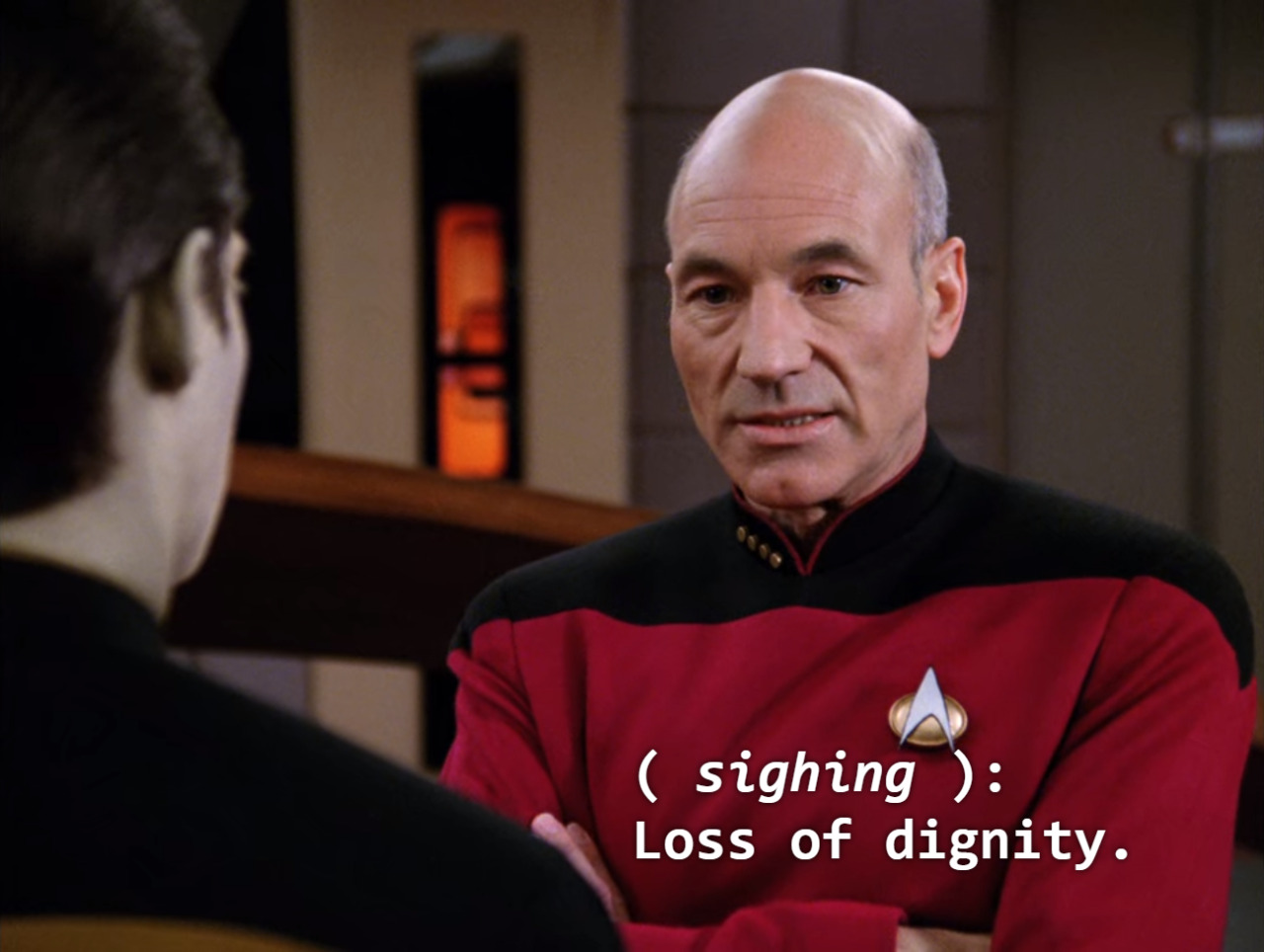
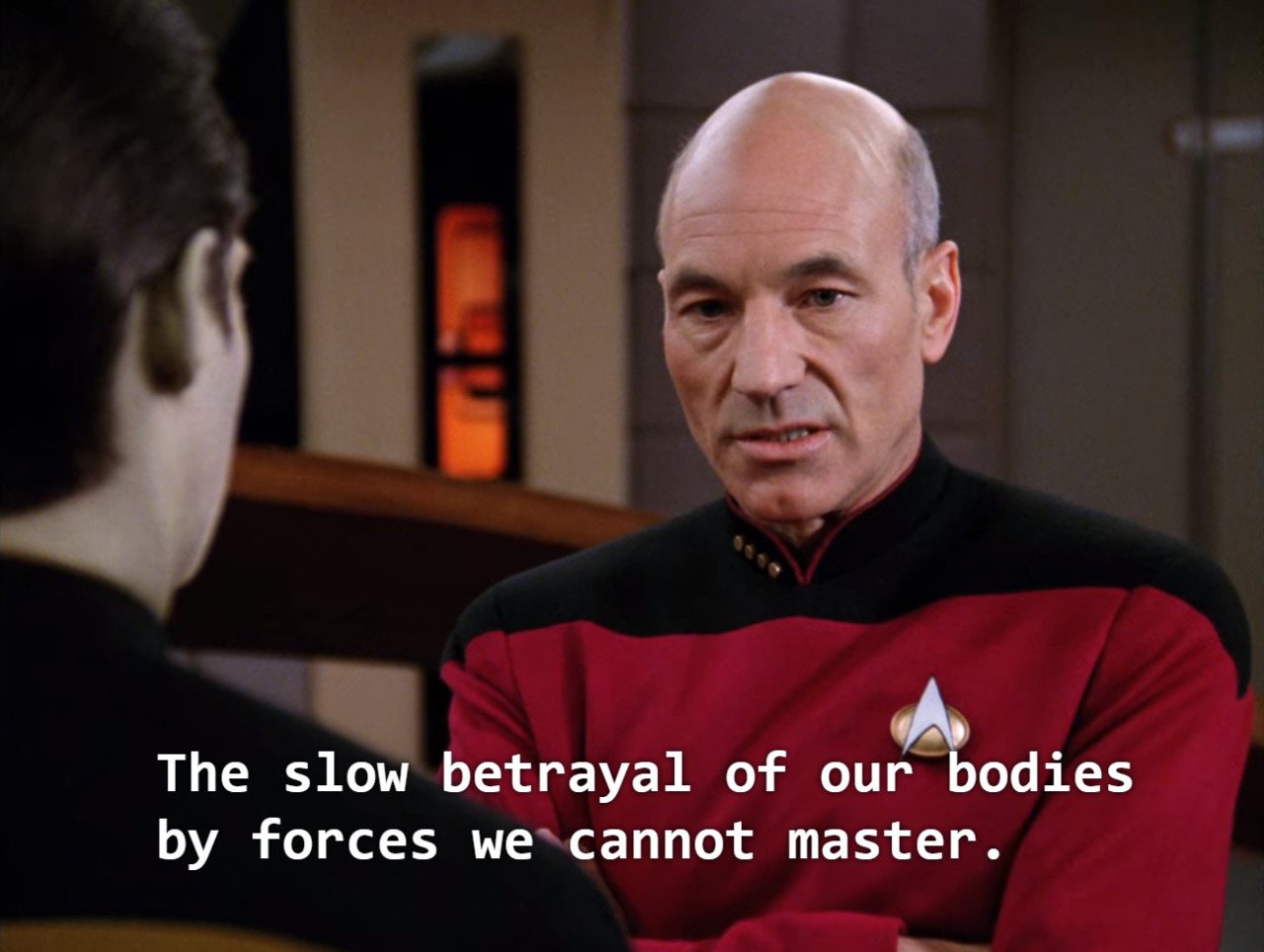
Captain, I do not need to hear this right now.
Captain, I do not need to hear this right now.
